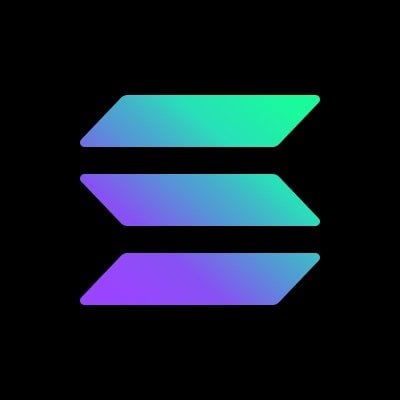Solana Validator Health Report: Decentralization Level Steadily Increasing
Original Title: Validator Health Report: October 2023
Original Author: Solana Foundation
Original Compilation: Fu Ruhe, Odaily Planet Daily
Recently, the Solana Foundation released the "Validator Health Report."
The report shows that the Solana validator network is continuing to grow, measured by metrics such as the number of nodes, Nakamoto coefficient, and client diversity. The health of the validator network is a key focus for the Solana Foundation, which provides tools and education to help validators and stakeholders around the world participate in the network's security. Additionally, the foundation encourages community participation and contributions.
There has been a noticeable increase in participation in Solana's validator network. The community has organized regular calls and online meetings to facilitate communication and share best practices among validators. Furthermore, the foundation plans to hold a Block 0 meeting in the future to further strengthen community ties.
The Solana network has developed multiple validator clients, including those from Solana Labs, Jito Labs, Firedancer, Sig, and lightweight clients. The diversity of clients is crucial for the health and decentralization of the network, mitigating the risk of single points of failure and enhancing the network's resilience.
The Nakamoto coefficient is an important metric for measuring network security, and Solana's current Nakamoto coefficient is 31. However, the foundation hopes to further increase this number to enhance the network's decentralization.
In terms of stake distribution on Solana, the network is geographically balanced, with no single country holding an absolute dominance. The foundation is closely monitoring the distribution of stakes and taking action to improve geographic diversity.
The following is the original report, compiled by Odaily Planet Daily.
Overview
The Solana validator network continues to grow and is measured by metrics such as the number of nodes, N distribution, and diversity. Notably, since the last Validator Health Report: Solana has made rapid progress as a multi-client network, with over 31% of stakes running through Jito Labs. Additionally, two more validator clients are under development, a significant increase from 0% a year ago. The network's uptime has reached 100%. Since February 26, 2023, various new software upgrade programs have been implemented, and there has been no performance degradation since then. As of September 6, 2023, Solana remains one of the largest PoS networks globally, with a large number of nodes and a wide distribution, according to measurements of the Nakamoto coefficient and validator software clients.
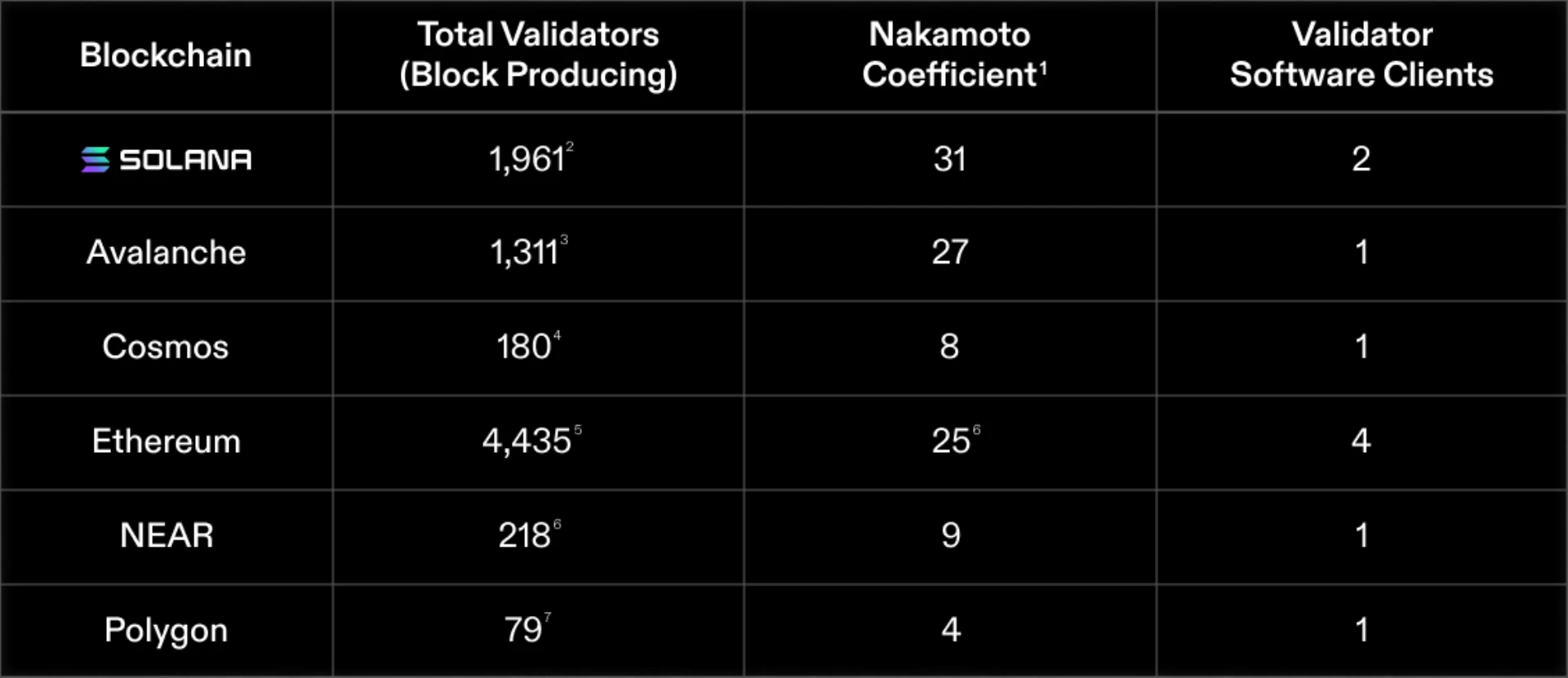
The Solana Foundation has also noted a significant increase in validator network participation in recent months. While it is difficult to quantify with hard data, some indicators of community engagement among validators include:
Regular community-led validator calls: Since March 2023, the validator ecosystem has begun planning and convening regular calls for the validator community to share notes and best practices.
Block 0 meeting: The validator community will hold its first Block 0 meeting in Amsterdam on October 30, 2023. This is a fully community-organized event aimed at discussing the development of the Solana network and strengthening social connections.
The Solana mainnet beta was launched in March 2020 and has made significant progress over the past three and a half years. During this time, the ecosystem has expanded considerably. The Solana Foundation strives for rigor and rationality when assessing the health of the network and enhancing its resilience and opportunities, encouraging the community to share their thoughts.
Core Client Development
In previous Validator Health Reports, the foundation discussed changes in thinking regarding the best ways to measure and assess network health. In particular, the foundation has recently devoted significant effort to strengthening the software aspect of validator network health. In this regard, the foundation focuses on encouraging the development of new software clients and strengthening the core contributor developer network from multiple organizations.
Validators are computers running the Solana validator client, which is the operating system of the Solana network. In any blockchain network, having multiple software clients is crucial for the network's resilience and decentralization, helping to ensure that the network software does not have a single point of failure. One of the most important victories achieved by the ecosystem is Solana's transition to a multi-client network, meaning that validators can choose to run different clients.
Current State of Solana
Currently, there are four different validator client implementations actively being developed, built on three independent codebases. Notably, Jito Labs' client is used by over 31% of Solana validators, an increase from 16% in March 2023 (the last Validator Health Report), and it has been at 0% since the client was first launched on the mainnet in August 2022.

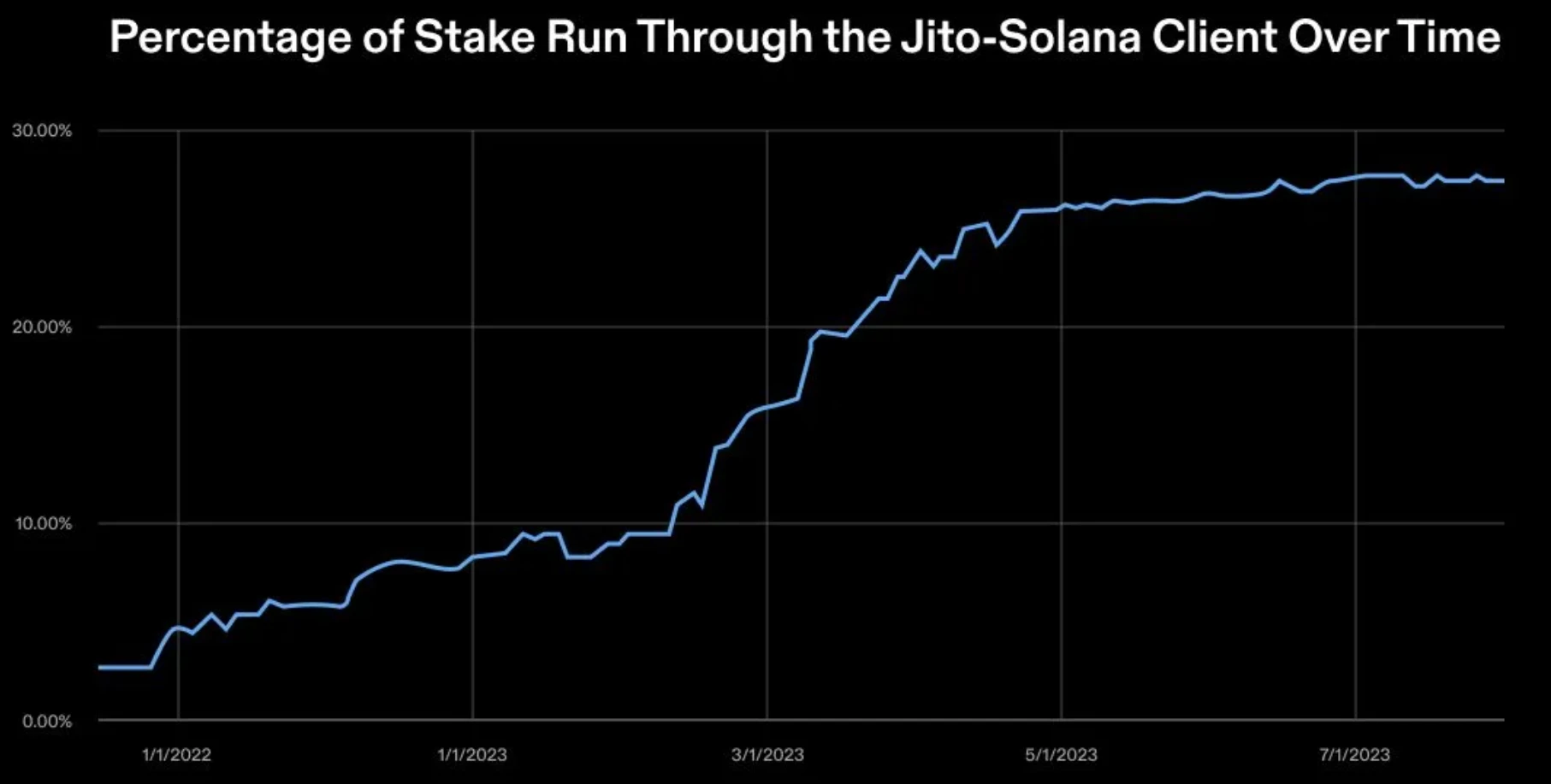
The diversity of validator clients is vital for the long-term health and operation of the network. By having multiple validator clients, the risks of errors or harmful code present in a single client can be mitigated by other independent clients that are unlikely to have the same bugs or malware attacks, thereby reducing the likelihood of a network-wide outage.
The first validator client on Solana was originally developed by Solana Labs. Since then, several independent efforts have created additional full or lightweight validator clients on the Solana network.
Jito Labs: In August 2022, Jito Labs released the second validator client for the Solana mainnet. This is a forked version based on Solana Labs' code, maintained, modified, and deployed by Jito Labs. However, since this is a fork of an existing independent build, bugs in the Solana Labs client are likely to also exist in this client.
Firedancer: Also in August 2022, Jump Crypto announced plans to build a brand new validator client on Solana. This validator client is developed from scratch and has significant performance improvements. In testing environments, Firedancer can handle up to one million transactions per second (in comparison, the original Solana Labs client handles about 55,000 transactions per second in similar testing environments).
Sig: In July 2023, Syndica announced that it was developing a Solana network validator client called Sig, written in the Zig programming language. In September 2023, Syndica's validator team released the initial implementation of Sig, including the implementation of the Gossip protocol.
Lightweight clients (such as TinyDancer): In addition to these four validator clients, TinyDancer is a lightweight client for Solana that is actively being developed. TinyDancer does not participate in block building and state maintenance for blockchain consensus, but rather enables users to validate more easily without having to run a full node themselves.
Total Number of Validators
Blockchains with more validators are generally more resilient. When users execute contracts on a blockchain, they need to be assured that their transactions will be recorded. Ideally, every transaction added to the blockchain should be recorded by every validator on that chain, which is why having more validators is important; a large and diverse set of validators can protect against catastrophic events like data center outages.
There are two types of validators: Consensus nodes: Consensus nodes play a core role in the operation of the network, providing two essential functions:
Creating and proposing new blocks to other nodes in the network.
Voting on the validity of new blocks proposed by other nodes.
RPC nodes: Remote Procedure Call (RPC) nodes serve as the interface between applications and the Solana infrastructure. These nodes are similar to consensus nodes, independently validating all new blocks and network changes, but they do not vote.
Current State of Solana:
In March 2023, the total number of consensus nodes decreased from about 2,200 to around 1,700. This decline was due to a significant amount of staked assets being reallocated to nodes charging 100% commission. Stakeholders recognized this issue and redistributed their delegations to more active validators. Following this decline, as of September 13, the number of consensus nodes has gradually and steadily increased to a total of 1,961 consensus nodes and 2,874 validator nodes.
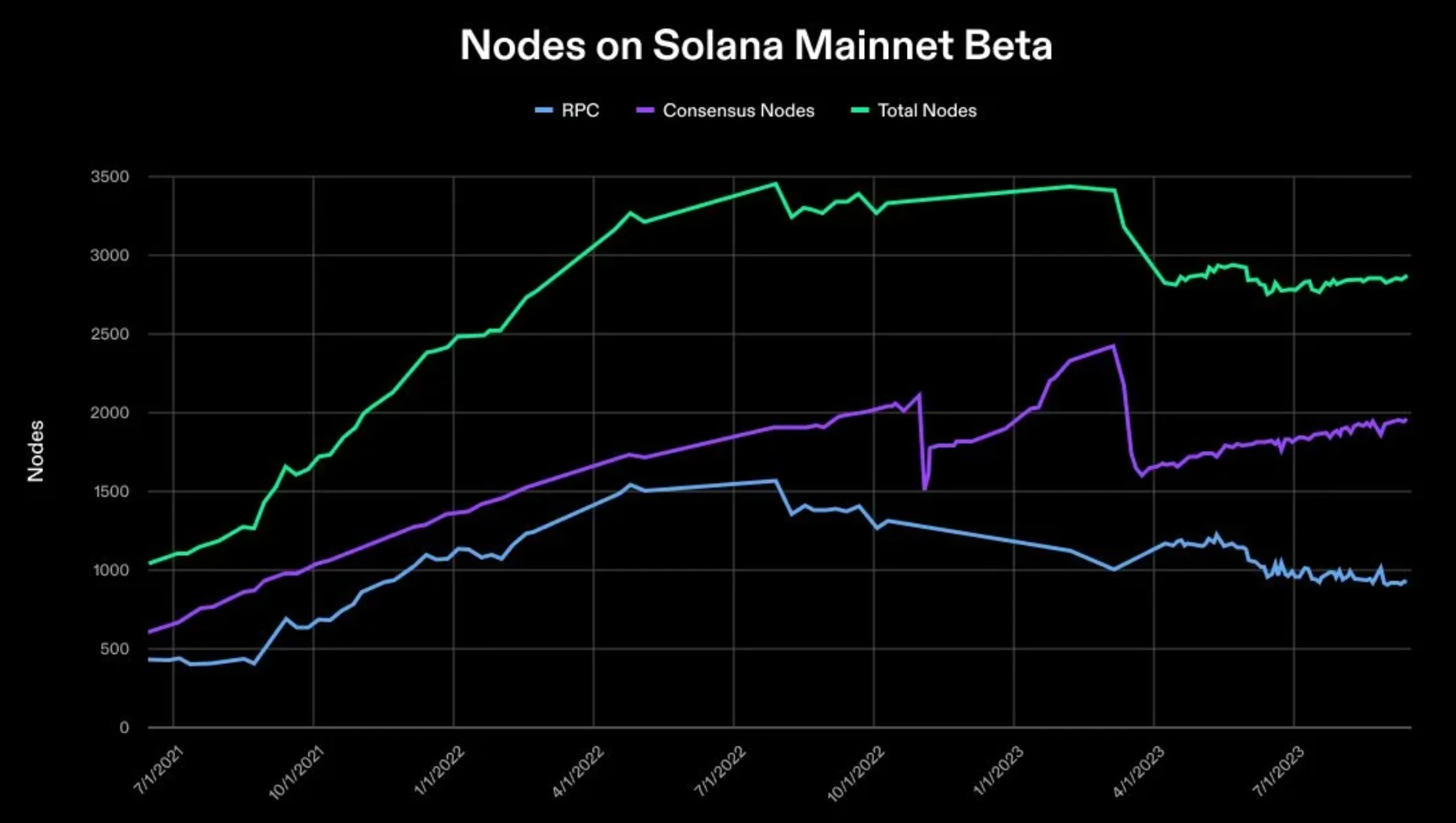
Relative to other proof-of-stake blockchains, Solana has a significantly high number of nodes. The foundation expects to adjust its plans in the coming months to encourage the quality of nodes, not just their quantity.
What constitutes a "high-quality validator" is subjective? Factors include node uptime, hardware performance, service levels when users encounter issues, and the level of engagement of validator operators within the broader validator community. The foundation will encourage validators to meet these standards and will share and launch these opportunities with the community in the coming months.
Nakamoto Coefficient of Voting Power
The Nakamoto coefficient of voting power is defined as the minimum number of nodes in the network that need to be compromised to implement censorship of blocks or halt consensus, thereby preventing some or all new blocks (and their transactions) from being confirmed. In most proof-of-stake networks, this is the minimum percentage of voting power required to represent at least 33.4% of nodes.
When stake distribution is highly concentrated, a small number of validators may represent 33.4% of the total delegated amount (a minuscule fraction). In a distribution where stake and consensus power are more dispersed, this set is larger, making it difficult for corporations, malicious actors, or other entities to manipulate the blockchain through censorship.
Current State of Solana:
In a survey conducted on September 6, 2023, Solana's Nakamoto coefficient was 31. This means that at least 31 validators would need to collude (as of March 2023) to censor the network. This Nakamoto coefficient is the same as the result in the last Validator Health Report, also at 31.
Solana's Nakamoto coefficient has steadily increased since its launch in March 2020, continuing until September 2022, and has remained relatively stable since then. A Nakamoto coefficient of 31 is strong. While the foundation hopes this number will increase over time, the growth of this number cannot be seen as a leading indicator of network decentralization, as the Solana network is viewed from the perspective of stake distribution.
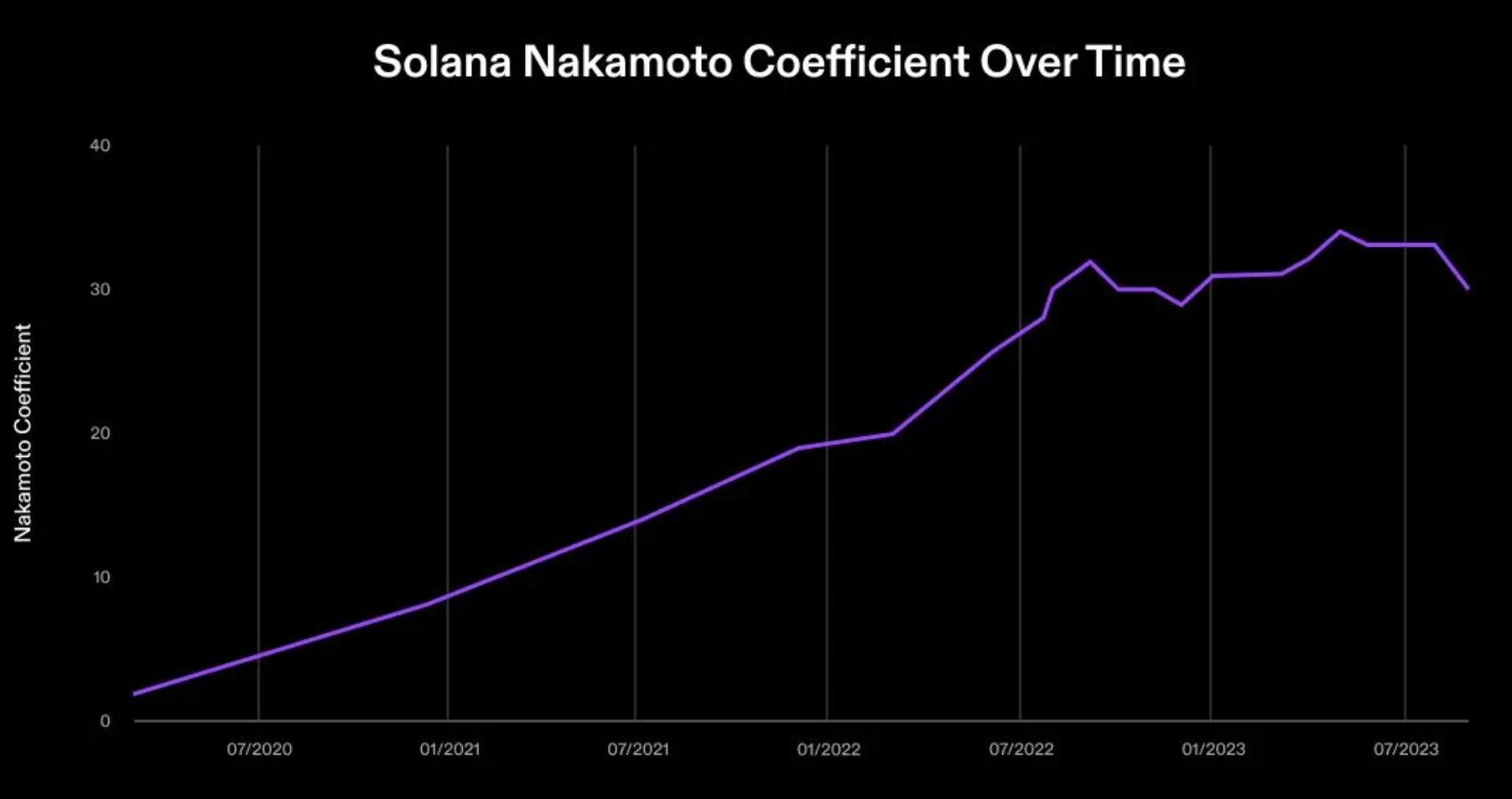
The following lists some other proof-of-stake blockchains' Nakamoto coefficients for benchmarking comparisons:
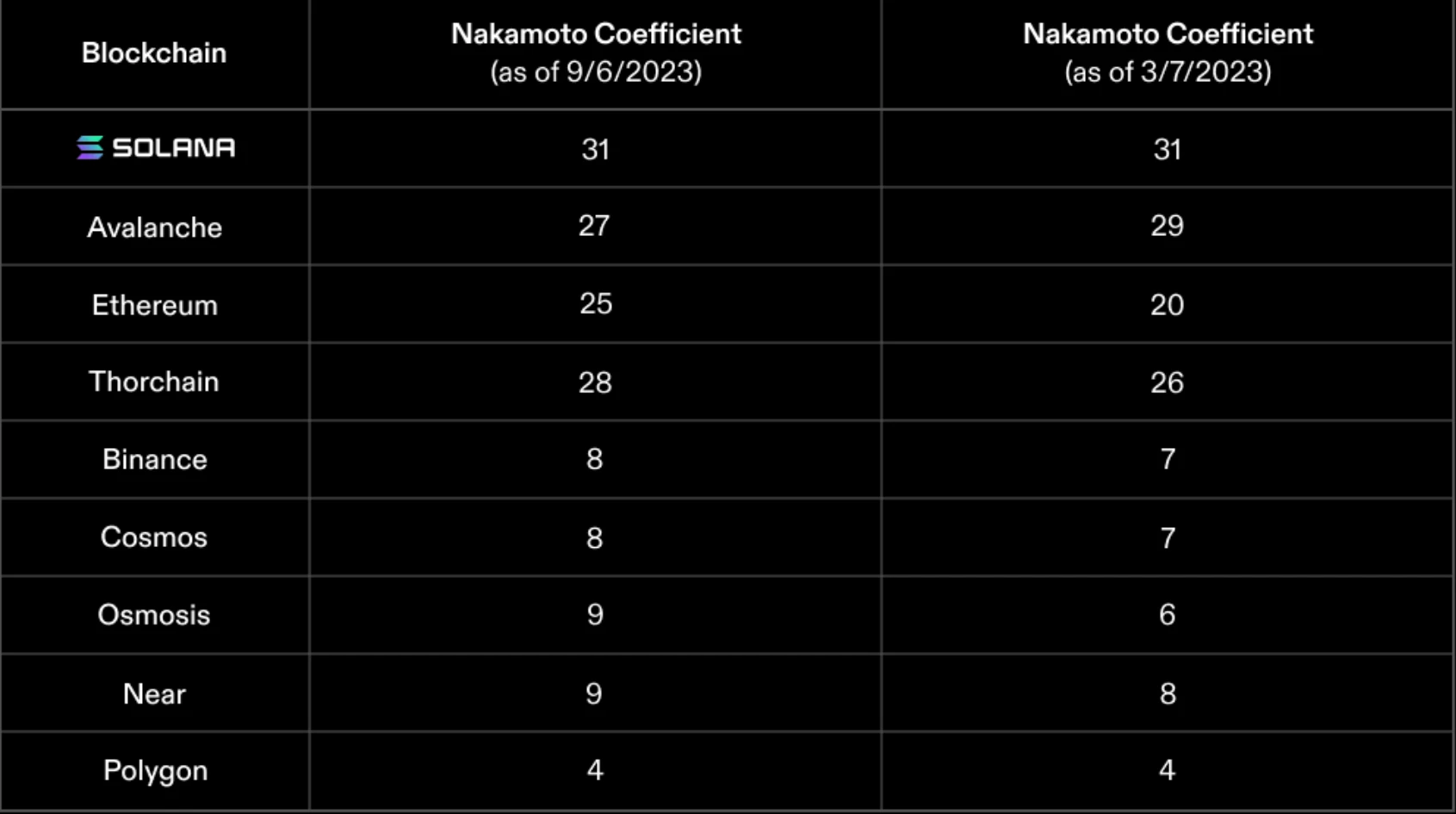
Even a large-scale, highly distributed network with multiple software clients can be susceptible to several external factors that may affect the blockchain's resilience. These factors will be discussed in the next section, which is also the final section.
Distribution
The Nakamoto coefficient and client diversity are key indicators, but they do not capture the human factors involved in running a blockchain. In terms of validator network health, few appreciate the role of external factors such as geopolitical issues, natural disasters, and corporate incentives.
In this final section, we will look at the resilience of the Solana network from the perspective of several external factors and how they may impact proof-of-stake networks like Solana.
Stake Distribution of Data Center Providers
Anyone can run a Solana node. Because the Solana protocol requires high-performance hardware, validator operators often rent server space from third-party data centers to run their nodes. This is not uncommon; most of the computing power on blockchains is done on servers owned by large third-party data centers.
The risk of using third-party data centers to run validator nodes means that the owners of these data centers have disproportionate power over the operation of the blockchain. To minimize the risk that a single company could harm the chain, stakes should be relatively evenly distributed among private companies renting server space.
This risk became evident in November 2022 when the server provider Hetzner blocked Solana nodes. Notably, the network continued to operate during this time. This amounted to a 20% attack on the network and demonstrated why distributing stakes among multiple server providers is so important.
Current State of Solana:
Data center providers typically operate multiple data centers and Autonomous System Numbers (ASNs). The data below is segmented according to publicly available data based on the ASN of major data centers.
An Autonomous System (AS) is a network of servers with a single routing number. Different autonomous systems are identified by unique ASNs. Depending on how internal networks or routing are configured, an autonomous system can span multiple physical locations across different geographic areas.
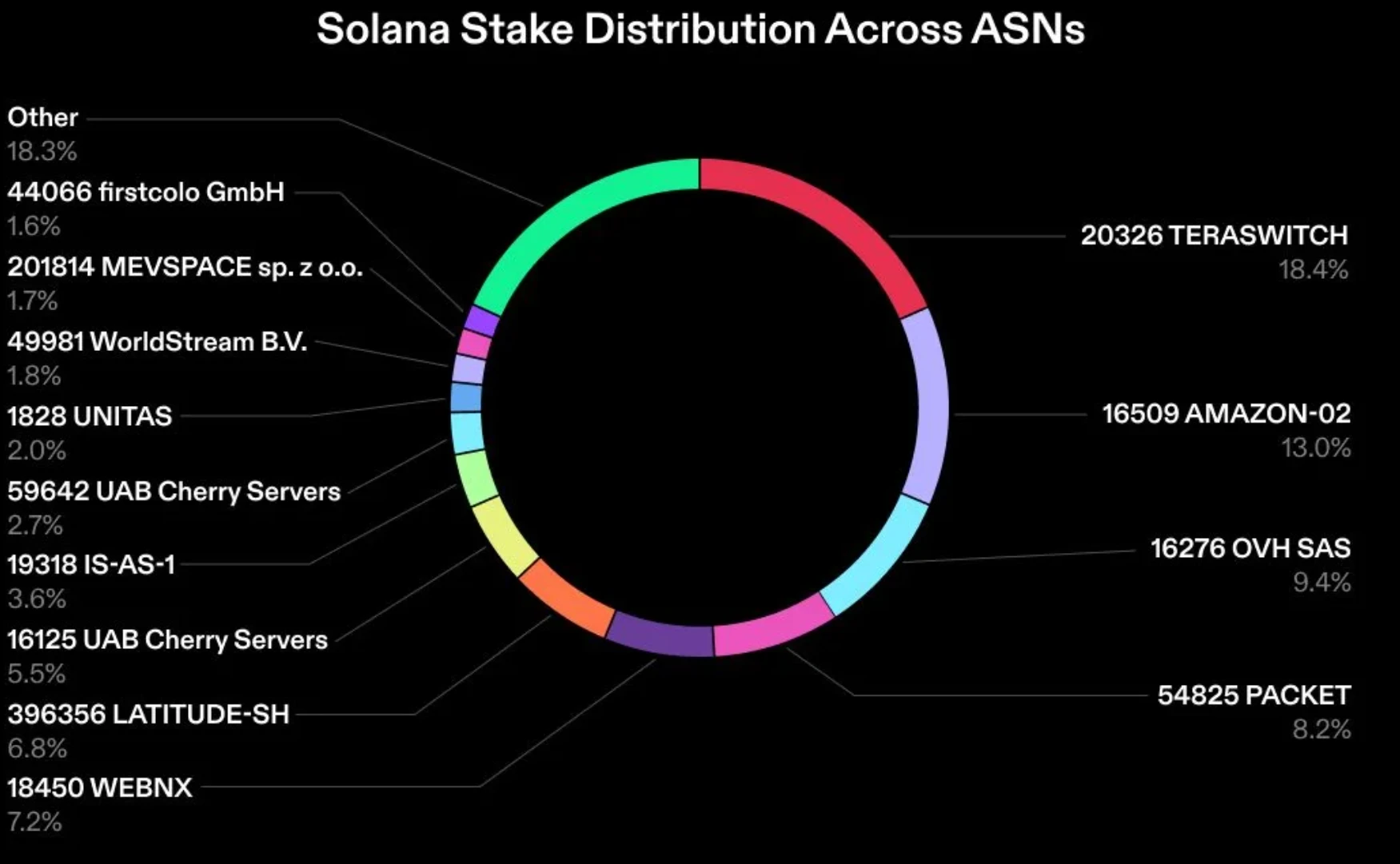
Solana's stakes are relatively distributed among Autonomous Systems (ASNs), with no single ASN hosting close to 33.3% of active stakes. Currently, at least three data centers would need to collude to combine over 33.3% of the stakes and halt the network.
Geographic Distribution of Stakes
Regardless of what events occur in a region of the world, a globally resilient blockchain must continue to operate. Consider the following scenarios:
A government attacks underwater cables that transmit the internet, causing an internet outage in an entire region. A globally resilient blockchain must be able to continue operating, unaffected by events in that region.
An authoritarian regime hunts down a dissident, and if that regime chooses to shut down blockchain servers operating within that country, the dissident must be assured that she can access her funds.
A natural disaster disrupts all nodes in a specific area. No matter where in the world users are utilizing the blockchain, they still need to be assured that even if many validators go offline unexpectedly, the chain will continue to operate.
In these scenarios, people still need to feel confident in the ongoing operation of the blockchain, even if many validators go offline unexpectedly.
Current State of Solana:
Below is a snapshot of the network's geographic distribution, organized by the percentage of stakes in each country.
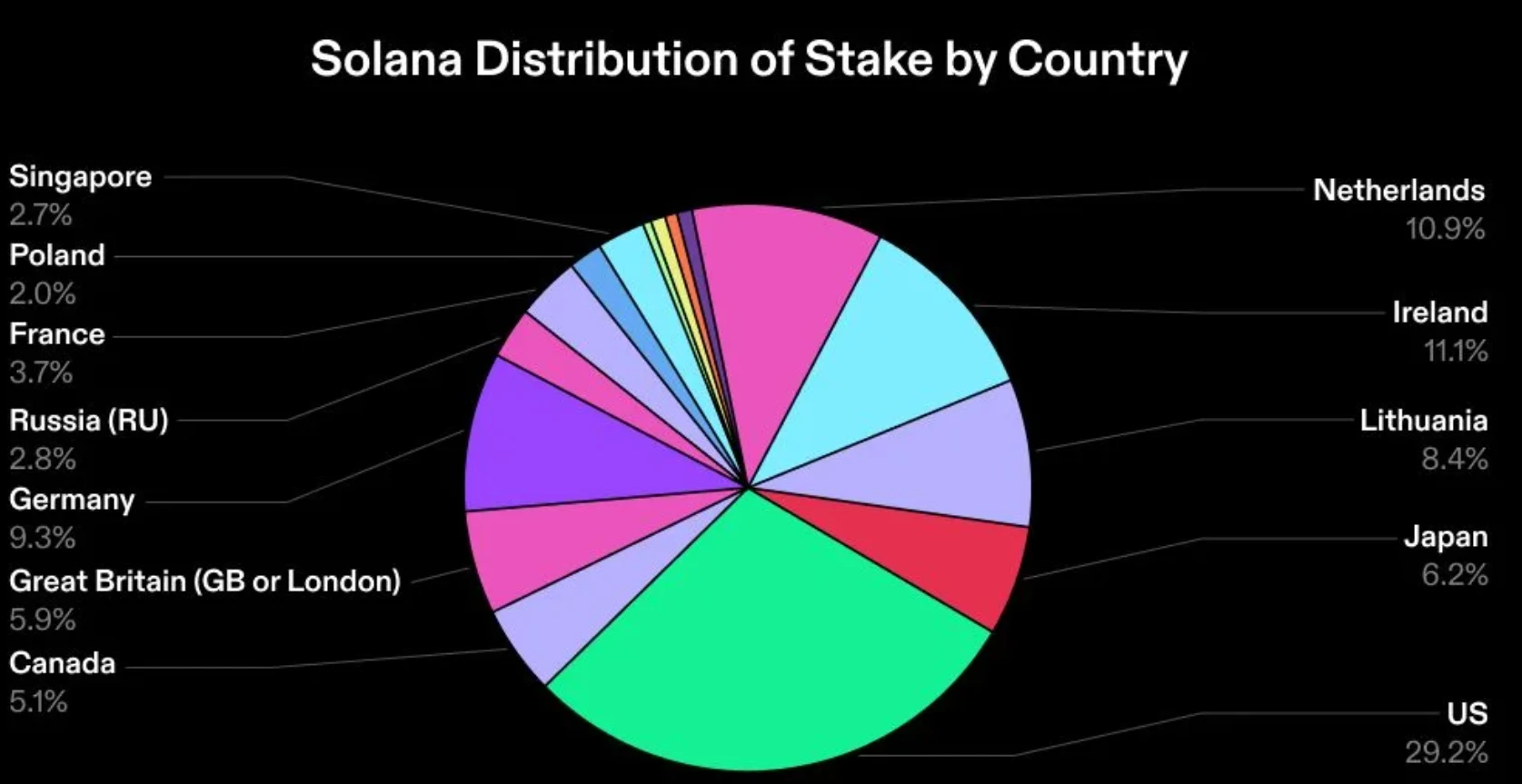
The network is geographically balanced, with no single country holding 33.3% of active stakes, although recent increases in the U.S. stakes indicate that they may eventually reach this percentage. Notably, the total active stakes in the U.S. and Canada amount to 34.3%. The percentage of stakes broken down by country here shows significant differences from the absolute number of data centers in each country.
With a significant increase in stakes from the U.S., rising from 23.5% in the last report to 29.2%. The foundation is working to address this issue, such as closely monitoring this change, assisting stake pools in optimizing decentralization, and taking action to adjust their scoring algorithms to consider geographic factors.
Looking Ahead
The Solana Foundation remains committed to improving the health of the validator network by providing tools and education to validators and stakeholders globally, encouraging community members to become thoughtful participants in network security. The foundation's focus has expanded beyond just community growth and the Nakamoto coefficient to include some less quantifiable ways to enhance the network's health.
The Solana validator community has launched several new initiatives to improve the network's health, including organizing Block 0 (an online meeting for validators), community-led validator gatherings, and new governance practices.
In the coming months, the foundation will support community efforts through its initiatives aimed at improving the health of the validator network, including changes to the Solana Foundation's Delanation program to help validators become more self-sufficient and sustainable, and to strengthen the community positioning of the network.





